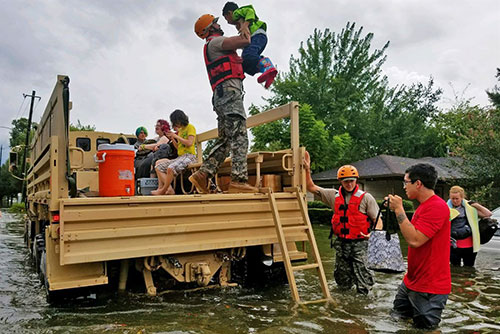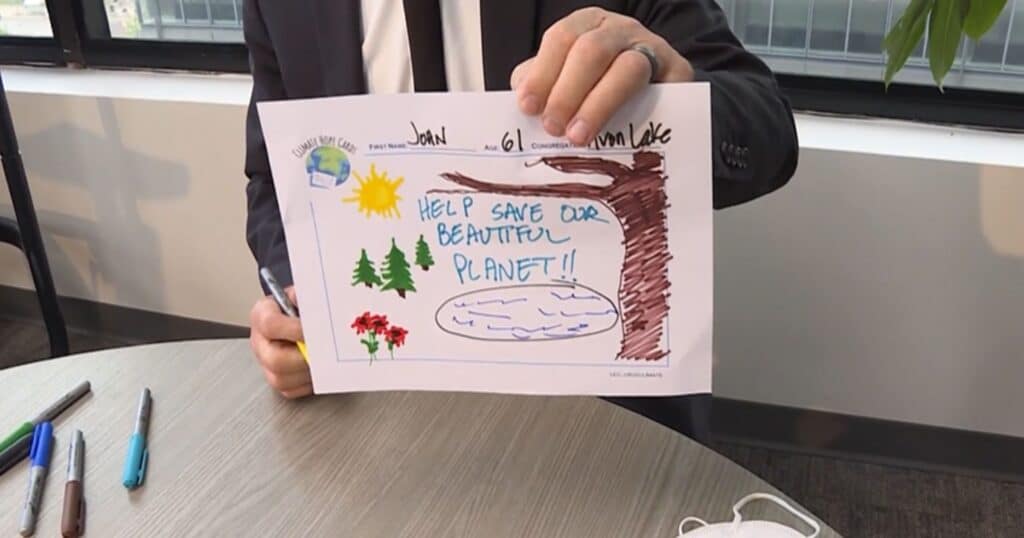How the Attention Span of Adults Hurts Children: The Lasting Impact of Hurricanes
 With media coverage that swivels its focus at a dizzying speed, the attention span of adults has become a shrinking phenomenon when it comes to the pressing events of the day. Arguably, there is a positive side to some of this. Out of concern for those in the Caribbean and Florida, this past weekend I found myself repeatedly checking for live updates on the destructive path of Hurricane Irma. I was grateful for the minute-by-minute reports, but I also realize there is a significant downside to current media trends, and I fear the children affected by hurricanes may be among those who suffer the most.
With media coverage that swivels its focus at a dizzying speed, the attention span of adults has become a shrinking phenomenon when it comes to the pressing events of the day. Arguably, there is a positive side to some of this. Out of concern for those in the Caribbean and Florida, this past weekend I found myself repeatedly checking for live updates on the destructive path of Hurricane Irma. I was grateful for the minute-by-minute reports, but I also realize there is a significant downside to current media trends, and I fear the children affected by hurricanes may be among those who suffer the most.
The one-minute attention span of adults today is no match for the long-term consequences a hurricane can have on a child. Thankfully, the plight of children affected by hurricanes received some much needed attention in the recent news cycle with the New York Times, NPR, and CBS each running a story. As the UN has noted, young people, including children, make up the largest group of those affected by disasters across the globe. In the United States, almost 14% of children are estimated to have experienced a disaster during their childhood.
These statistics, however, do not capture the personal impact endured as children lose homes, have their schooling severely disrupted, and sometimes witness traumatic incidents. While children are remarkably resilient and many bounce back from the psychological stressors, some suffer lingering effects such as depression and anxiety for years. Moreover, with the toxic spills and releases reported with Hurricane Harvey, one must also wonder about other long-term health effects on exposed children.
Amid the vast array of petrochemical plants and refineries, scientists and environmentalists are already concerned about ultimate consequences. The dangers multiply with 96 hazardous spills reported, flooding or damage at 14 or more toxic waste sites, excess emission releases from plants, and multiple explosions at one chemical facility. From cancer-causing compounds to lead and arsenic, the hurricane created a toxic catastrophe that places children in particular danger.
For a number of years, there have been notable faith-based efforts to address the needs of children affected by disasters. Through Children’s Disaster Services, Church of the Brethren sets up childcare centers in shelters and disaster assistance centers. Lutheran Social Service of Minnesota runs day camps for children in different impacted communities throughout the country as a way to help children process their experiences while also acquiring resiliency skills.
When it comes to disaster response, faith communities frequently have an area of specialization. My own denomination, the United Church of Christ, specializes in long-term relief work in recognition of the need for ongoing recovery efforts in the months and years after national attention has faded. I have come to appreciate how this ministry challenges my own attention span. I will readily confess how easy it is for me to shift my focus.
In such moments, I think about when my oldest child first began preschool. I knew nothing about the education of two-year-olds, and I will never forget her teacher telling me that the foundation of all learning is the ability to focus and to sustain that focus. In the aftermath of Hurricanes Harvey and Irma, we have the opportunity to respond with as much compassion as we can muster, and we have the opportunity to sustain our focus so that we can always be students in learning how to love and care for others, especially the most vulnerable among us, our children.
The Rev. Brooks Berndt is the United Church of Christ Minister for Environmental Justice. Donations can be made for both Hurricane Harvey and Hurricane Irma long-term relief work.
Related News
The UCC’s 2025 Climate Hope Art Contest
Register now! For the third straight year, the UCC is conducting a Climate Hope Art...
Read MoreFinding Faith in Cancer Alley
Cancer Alley is the nickname given to 80 miles of the Mississippi between Baton Rouge and New...
Read MoreCall to Address Environmental Racism in Alabama Community
For six years, the Shiloh community of Elba, Alabama has faced severe flooding caused by the...
Read More


